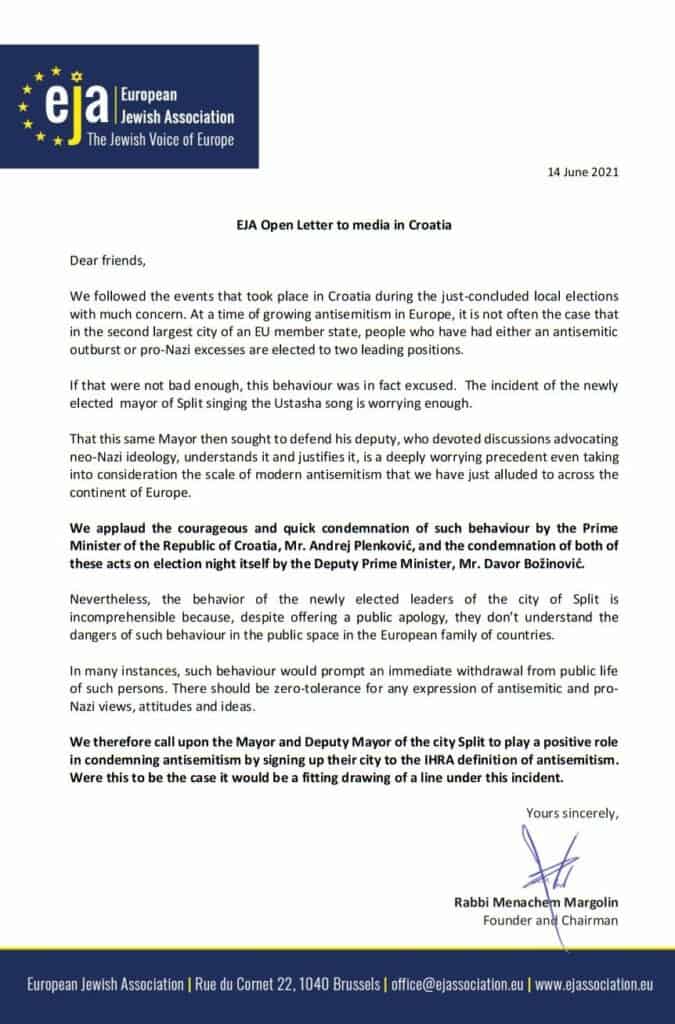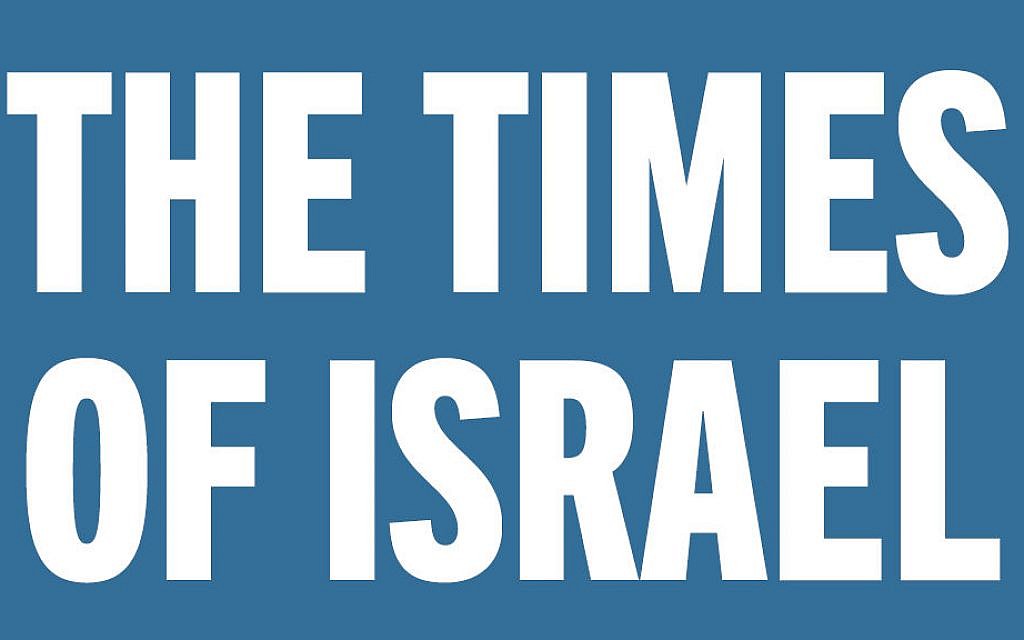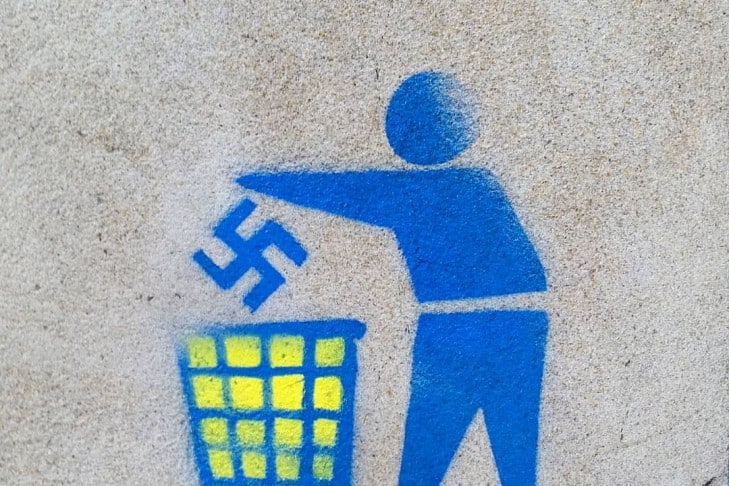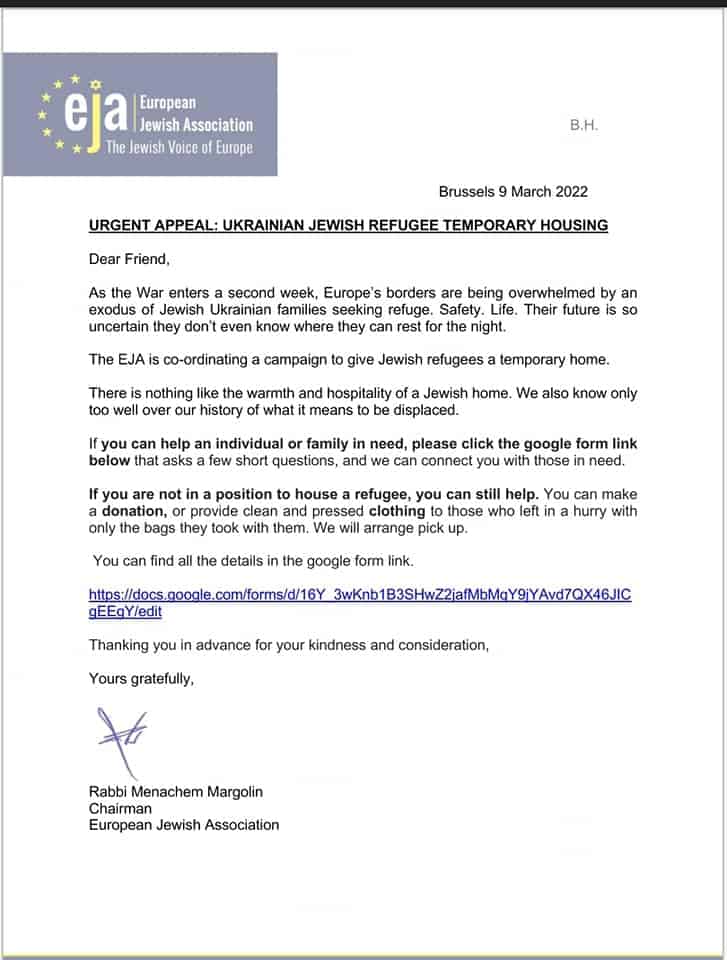Cet index de la « qualité de vie juive », réalisé à partir de sondages et études, croise quatre ensembles de données : le sentiment de sécurité ressenti par la communauté juive, l’attitude de la population vis-à-vis des Juifs et Israël, l’antisémitisme et enfin la « performance du gouvernement » (statistiques sur les incidents antisémites, lieux de mémoire de la Shoah, budget destiné à la sécurité des sites juifs, liberté de culte et préservation des pratiques juives telles que la circoncision et l’abattage rituel, etc…)
Les études ont été menées par l’Institute for Jewish Policy Research de Londres et par la European Union Agency for Fondamental Rights, auprès de 16 000 Juifs européens en 2018.
Recevez gratuitement notre édition quotidienne par mail pour ne rien manquer du meilleur de l’infoINSCRIPTION GRATUITE !
Il en ressort que la France, qui comprend la plus forte communauté juive d’Europe avec un peu moins de 500 000 Juifs, arrive à la 10e position (68/100) de cet index qui concerne également l’Italie (1ère place avec 79/100), la Hongrie (2e), la Pologne (11e), la Belgique (12e place avec 60/100), mais aussi l’Allemagne, l’Espagne, le Danemark, le Royaume-Uni, la Suède, les Pays-Bas.
« L’une des conclusions, surprenante, est que le gouvernement de la France a une bonne performance » par les actions menées par l’État (score de 83/100), « mais en dépit de cela, la communauté juive exprime un fort sentiment d’inquiétude » pour sa sécurité (31/100), a déclaré à l’AFP Daniel Staetsky, auteur de cet index, statisticien à l’Institute for Jewish Policy Research.
Comme possibles explications, il a cité les « attaques terroristes antisémites » comme la tuerie de l’école juive Otzar Hatorah à Toulouse en 2012 ou l’attaque contre l’Hypercacher dans l’Est parisien en janvier 2015.
Autres enseignements de ces études : c’est au Danemark que la population juive se sent le plus en sécurité. La Hongrie arrive au premier rang concernant l’antisémitisme. Et la Belgique est dernière pour les actions menées par le pays en faveur de sa communauté juive.
Selon l’EJA, la rencontre, qui se tient à Budapest depuis lundi et se termine mardi, réunit quelque 250 personnes, dont 120 représentants et dirigeants des communautés juives d’Europe.
Dans un autre rapport publié plus tôt ce mois-ci, le rapport national des mesures gouvernementales pour lutter contre l’antisémitisme et encourager la vie juive en Belgique, le CEJI (Contribution juive à une Europe inclusive) a demandé à la Belgique de mieux enseigner la Shoah, a rapporté la presse belge.
La conclusion de ce rapport interpellait sur le fait que, dans l’ensemble, l’État belge avait peu fait pour lutter contre l’antisémitisme en tant que type spécifique de racisme. Il demandait des interventions ciblées ainsi que des efforts publics plus importants – le domaine où les politiques ayant obtenu le score le plus bas, et de loin, étant l’éducation.
« Il n’y a pas de guidance officielle par rapport à l’antisémitisme. La Shoah est enseignée, mais pas de manière consistante. Il y a des élèves à qui on n’a jamais parlé de la Shoah. Du côté francophone, il y a de nouvelles lois pour couvrir le nazisme qui vont être mises en place dans les années à venir », a déclaré Robin Sclafani, directrice du CEJI. « Les enseignants doivent être mieux formés. Il faut savoir comment enseigner l’antisémitisme par l’éducation à la Shoah contemporaine », a-t-elle ajouté.
L’idée de nommer un coordonnateur national pour la lutte contre l’antisémitisme et la promotion de la vie juive a ainsi été évoquée. L’organisation a aussi demandé à l’État d’apporter le soutien nécessaire à la mise en œuvre de la politique. Il a aussi été recommandé de mettre en place un groupe de travail interministériel durable afin de faciliter la communication et la coopération au sein du gouvernement ainsi qu’une table ronde, nationale, durable et participative, réunissant les parties prenantes dans le but de faciliter la communication et la coopération avec les organisations de la société civile afin de mettre en œuvre des plans d’action nationaux de lutte contre le racisme et l’antisémitisme.
Un consortium de recherche interdisciplinaire a aussi été recommandé, dans le but de rassembler des connaissances permettant d’éclairer la définition des politiques afin de contribuer à prévenir et à combattre l’antisémitisme et à promouvoir la vie juive. Il a enfin été demandé de fournir des ressources financières et humaines pour assurer la mise en œuvre durable de ces mesures générales.

















